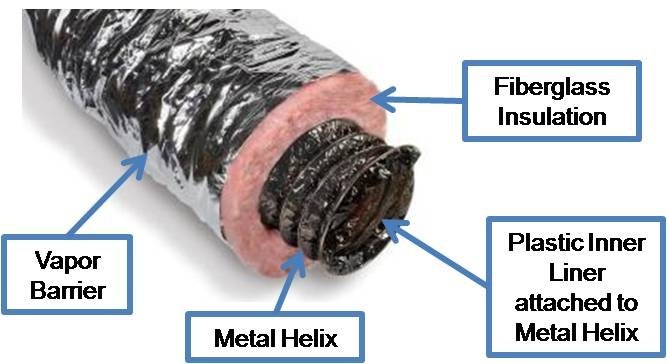What is Ductwork?
An HVAC system is like your body’s circulatory system with the thermostat acting as your brain, your furnace as your heart, and the ductwork as your blood vessels. Just like the veins and arteries in our body, there are return air ducts and supply air ducts. The return air ducts bring unconditioned air from your house into the furnace to be conditioned. While the supply air ducts send the conditioned air into the house. Without proper ductwork, your HVAC system will struggle to keep you comfortable inside your home.
Why is Ductwork Important?
The ductwork in your home is responsible for circulating the air around your home. Properly sized and installed ductwork has multiple benefits. First, it will reduce the strain on your HVAC equipment, prolonging its life and saving you money in energy costs.
Second, your air will be cleaner with fewer dust particles, allergens, and germs floating in the air. The better the air circulates through a home, the more you filter will eliminate these hazards.
Third, is your overall comfort. Sufficient ductwork in your home will reduce hot and cold spots in your home by providing consistent, even temperatures throughout your home. If your ductwork isn’t properly sized and installed, problems will occur. Poor ductwork results in a traffic jam of air within your ductwork, causing your equipment to work harder and potentially a lower life span, as well as a reduction in your overall comfort.
The bottom line is that your ductwork is just as important as your HVAC equipment. The only way to ensure that your equipment and ductwork is properly sized is to have Manual J Load and Manual D calculations performed in your home to make sure your entire HVAC system is sized properly. Too many contractors skip these steps, but it should be standard with any major HVAC project.
What are some examples of ductwork modification?
The best way to visualize ductwork in the home is to think of a tree with the furnace being the trunk. Connecting the furnace to the ductwork is called the plenum. The plenum then connects to the main trunk line that runs across your home. Next are the individual lines that go off from the trunk line to the individual rooms in your home. This network of ductwork supplies the house with conditioned air.
Next, is the network of ductwork that is responsible for returning air from the house back to the furnace to be filtered and conditioned again. The single most common ductwork modification we make is to install a larger return air drop, which is the main return line connected back to your furnace. This allows for proper circulation.
Other examples of ductwork modifications can be creating a new plenum when a new furnace is installed, replacing old sections of trunk line, adding dampers to help control the flow of air in home, and others.
Who Should Consider Ductwork Modifications?
More often than not, ductwork modifications are needed to accommodate new HVAC systems. The reason is that many existing systems were not sized correctly. In fact, 9 out of 10 HVAC systems that we replace require ductwork modifications of some kind due to improper sizing. Ensuring correct pressure levels in the airflow is the key to a comfortable home.
If you added a room to your home since updating your HVAC system, it will likely need ductwork added. This is why calculating the power and size of your system is so important, since that new addition to your home may simply be stealing heating and cooling from other parts of the house.
Another reason is if the home lacks ductwork entirely. Some homes use baseboard heating, window units, or other alternative methods. In situations like these, a complete network of ductwork is needed when converting to a central air system.
The last reason someone may need ductwork modifications is if they’re having issues properly heating or cooling specific areas or rooms in the house.
If you find your upstairs too hot, for example, or an area in your home is consistently colder than the rest of the house, the issue likely isn’t your air conditioner or furnace. It’s likely a problem with the ductwork.
How much does ductwork modifications cost?
By now you’re probably wondering, how much does it cost to have ductwork modifications done? The simple answer is it all depends.
At the low end, you have the replacement of your return air drop. Including installation fees, you’re looking at somewhere between $200-$400.
A new or heavily modified trunk line or return air duct can range between $1,000-$1,500.
And if you are adding brand new ductwork throughout your entire home, it can range as much as $10,000-$12,000 for larger homes.
Most ductwork modifications are minor and inexpensive, but it’s important to talk to your HVAC partner to determine what’s right for you.
QUICKLINKS:
Silver Flex Ducts
Mobile Home Flex Ducts


I like this blog so much, saved to favorites.